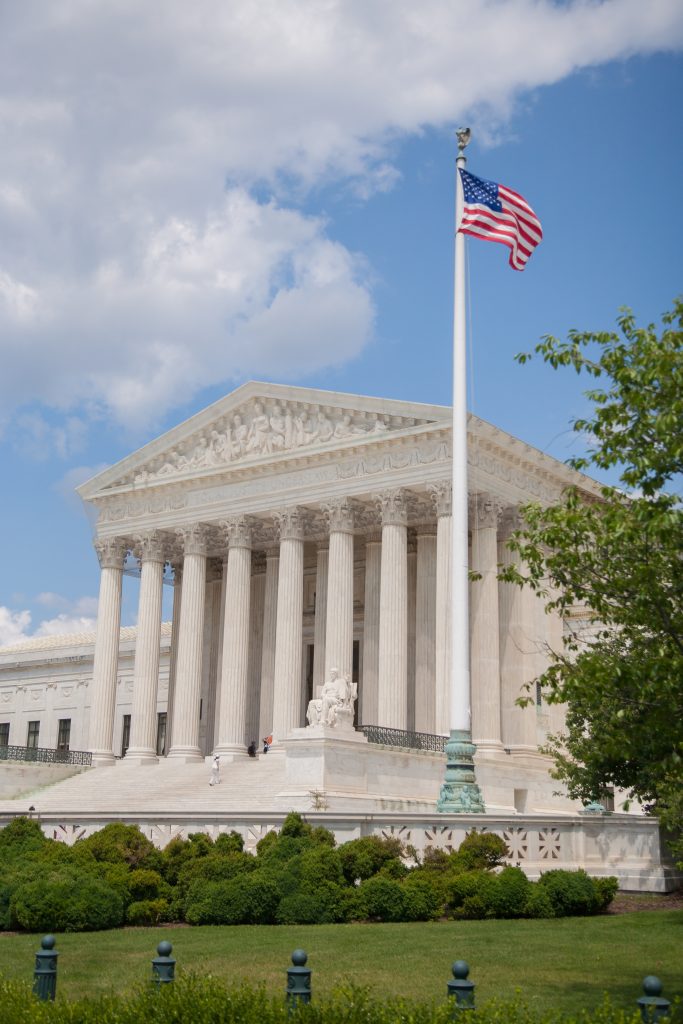
Public Law Update – Nollan/Dollan Takings Claim May Be Filed to Challenge Development Impact Fees Imposed Pursuant to Legislation, Supreme Court Rules
Apr 15, 2024The U.S. Supreme Court has again expanded the circumstances in which property owners and developers may present inverse condemnation (takings) challenges to cities’ and counties’ land use decisions. In Sheetz v. County of El Dorado, California, the Court held that property owners and developers may file suit to claim that the imposition of development impact fees, as a condition of project approval and pursuant to legislation previously adopting fees, unconstitutionally exacts property. Prior to the Sheetz case, such Nollan/Dolan takings challenges to the imposition of impact fees were not permitted in California courts. As a result of the U.S. Supreme Court’s ruling in Sheetz, public agencies should more closely analyze the sufficiency of their nexus and rough proportionality determinations whenever they impose impact fees on projects to ensure that they satisfy the Nollan/Dolan Doctrine requirements of a nexus and rough proportionality to impacts caused by the project.
Cities and counties commonly adopt development impact fees pursuant to the Mitigation Fee Act and nexus studies to show that the fees have a relationship to mitigate the impacts of new development, and then impose those impact fees when approving particular projects. Under longstanding precedents by the California Supreme Court and Ninth Circuit Court of Appeals, the imposition of such impact fees on projects, pursuant to previously approved legislation and nexus studies, had not been subject to inverse condemnation (takings) lawsuits claiming that the impact fees unconstitutionally exact property. Instead, only when a city or county made an individualized, ad hoc determination (rather than the pursuant to previously approved legislation) could a property owner or developer present such a Nollan/Dolan takings claim to allege that the fee lacks a nexus and rough proportionality to impacts caused by the project.
In Sheetz v. County of El Dorado, California (U.S., Apr. 12, 2024, No. 22-1074) __ S.Ct. __, 2024 WL 1588707, the Supreme Court unanimously held that an inverse condemnation claim is available whenever a government allegedly engages in excessive regulatory overreach that compels property owners to bear burdens beyond their responsibility, which burdens should be paid for by the public at large. This principle applies, the Court ruled, whether the government excessively regulates property through legislative or administrative action. Accordingly, the Court held, even when the government imposes impact fees in accordance with an amount or schedule previously approved by resolution or ordinance and supported by a nexus study, the developer or property owner may claim that the impact fee lacks a nexus to impacts of its project, or is an amount not roughly proportionate to the impacts, pursuant to the Nollan/Dolan Doctrine.
The Court expressly left open the question of whether local governments can defend such fees by showing that they satisfy nexus and rough proportionality requirements as to the specific project at issue, or whether they can refer to classes of similar projects (e.g., retail or office projects).
This ruling abrogates, in part, contrary rulings by the California Supreme and Ninth Circuit Court of Appeals. (See, e.g., San Remo Hotel L.P. v. City And County of San Francisco (2002) 27 Cal.4th 643, 666-70; McClung v. City of Sumner (9th Cir. 2008) 548 F.3d 1219, 1226-27.)
To be clear: the ruling in Sheetz does not prohibit imposition of impact fees, whether imposed pursuant to legislation or on an individualized ad hoc basis. Rather, it means that local governments should more closely analyze the sufficiency of their nexus and rough proportionality analysis whenever they impose impact fees – and consult with legal counsel.
Attorneys at Burke regularly advise clients on legal matters related to compliance with the Nollan/Dolan Doctrine and the Mitigation Fee Act.
All materials have been prepared for general information purposes only to permit you to learn more about our firm, our services, and the experience of our attorneys. The information presented is not legal advice, is not to be acted on as such, may not be current, and is subject to change without notice.


